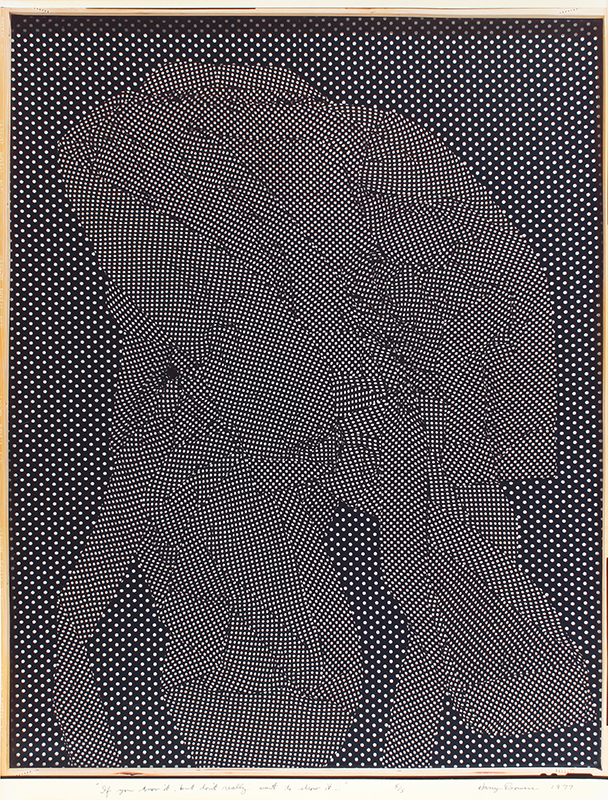
19th, 20th & 21st Century Fine Prints
707-546-7352 · fax 707-546-7924 · web: www.annexgalleries.com · email: artannex@aol.com
If You Know It But Don't Really Want to Show It by Harry Bowers

If You Know It But Don't Really Want to Show It
Harry Bowers
If You Know It But Don't Really Want to Show It
Harry Bowers
1938 - 2024 (biography)Harry Bowers printed this large, 38 x 30 inch C-print of a robe in 1979. The image was part of a series titled "If You've Got It" that focused on clothing as a metaphor in contemporary culture. When asked about his fascination with empty clothing Bowers stated: "That is already there for me to work with. I get given a head start with a fabulous pattern from another artist or designer – I combine this with others and create something of my own. Also, my mother was a fashion designer and all the clothes I use belong to my wife – there’s probably something in that".
When asked the question 'As a pioneer in the development of digital printing would your work have been possible fifty years ago?' Bowers responded: "Not at all. For the W* shoot we used a gigantic negative and a hugely expensive digital camera – to have achieved the incredibly high quality and resolution of the photographs would simply not have been possible."
These large C-prints were created using a camera and printing techniques that were built and developed by the artist himself. Bowers spent 1987 to 2000 running tech businesses. In 1984 the Elejehelm Museum in Madison, WI commissioned Bowers to do a portfolio of ten of his large images titled "Harry Bowers: Ten Photographs" in a small format, 16 x 20 inches, in which this image is included.
Photographer and assemblage artist Harry Bowers was born on April 22, 1938, in Los Angeles, CA. Before he pursued art, Bowers studied engineering physics at the Massachusetts Institute of Technology (M.A., 1965). and received a BS in Engineering Physics from the University of California, Berkeley (1964) before turning to photography and completing an MFA at the San Francisco Art Institute (1974). He worked as an instructor at the San Francisco Art Institute and other universities in California before leaving the field in the early 1980s.
Bowers went on to found a number of successful tech companies that were early forerunners in digital printing technology and color calibration and for which he held four patents. He lost most of his negatives in 1990, but he rediscovered many of them in 2004 and returned to making art.
Harry Bowers died on April 15, 2024, in Staatsburg, New York.


